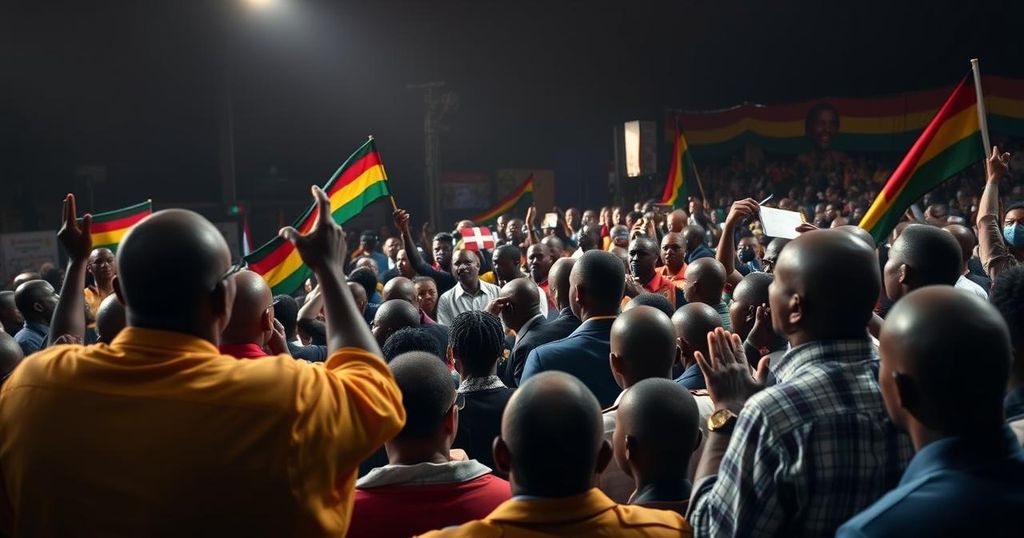Allegations of Electoral Fraud in Mozambique Raise Concerns Over Election Integrity

The recent elections in Mozambique have been overshadowed by accusations of massive electoral fraud, primarily from opposition candidate Venancio Mondlane, who asserts he was subjected to significant electoral malpractice. Official results indicate a potential victory for FRELIMO and their candidate, Daniel Chapo. Reports of illegal voting by Zimbabweans and systemic disenfranchisement in Renamo-supporting regions have further complicated the legitimacy of the electoral process, sparking widespread concern over Mozambique’s political future.
Reports of significant electoral fraud have surfaced in Mozambique following the recent elections, though official results have not yet been proclaimed. The ruling party, the Liberation Front of Mozambique (FRELIMO), has been in power since the country’s independence nearly five decades ago. Daniel Chapo is the party’s candidate, anticipated to secure victory. Venancio Mondlane, running as an independent after departing from the main opposition party, Renamo, claims he is the rightful victor due to purported extensive fraud: “What we are seeing here is election rigging of the highest order,” Mondlane stated, asserting that such practices are consistent with prior elections. Official figures suggest that FRELIMO leads with 53.68% of votes in Maputo, while Mondlane has about 33.84%. Renamo’s chairman, Ossufo Momade, and Lutero Simango of the MDM party garnered only approximately 9% and 3% of votes, respectively. FRELIMO representatives maintain that the election was fair, with Antonio Niquice, their secretary in Maputo, affirming that “These elections were very transparent.” However, in the conflict-ridden Cabo Delgado region, Chapo’s reported win of approximately 66% has raised concerns about Renamo’s diminishing influence. Analyst Jaime Guiliche reflected on this transition, suggesting that newfound support for the Podemos party may overtake Renamo, shifting the political landscape significantly. Accusations of electoral fraud emphasized by Forswear continue to circulate, particularly in Zambezia province, where Renamo’s representatives claim that their delegates were denied oversight of the voting counts. Manuel de Araujo, Renamo’s gubernatorial candidate in Zambezia, has initiated international outreach to report alleged electoral discrepancies, citing organized mismanagement by authorities which disenfranchised voters, particularly in areas known to favor Renamo. Furthermore, widespread irregularities claimed to involve thousands of Zimbabwean nationals voting unlawfully in Mozambique’s elections have surfaced. Reports indicate that many Zimbabweans, stating they were encouraged by their own ruling party to vote for FRELIMO, were able to cast ballots without legitimate Mozambican identification, further complicating the legitimacy of the election process. Allegations extend not only to the local context but also raise concerns about foreign interference in Mozambique’s electoral integrity, as evidenced by testimonies from Zimbabwean media reports.
The elections in Mozambique have historically been marred by accusations of fraud and irregularities, with the FRELIMO party maintaining control since independence in 1975. The recent election cycle has brought about renewed claims of electoral malfeasance, particularly from the opposition, which contends that systemic failures allowed for widespread voting issues, disenfranchisement of voters, and potential foreign interference. The involvement of Zimbabweans in the vote has raised questions not only about electoral integrity but also about diplomatic relations and the nature of political alliances in the region. In the context of Mozambique’s political history, FRELIMO’s rule has been characterized by both consolidation of power and allegations of authoritarian governance, with Renamo emerging as the primary opposition force amid a challenging electoral atmosphere. The dynamic between domestic parties and external influences such as Zimbabwean political organizations highlights the complexity of election legitimacy in southern African politics.
In conclusion, the recent elections in Mozambique have sparked significant controversy and allegations of fraud, particularly concerning the roles of FRELIMO and the opposition parties. Venancio Mondlane’s claims of a rigged election illustrate a persistent distrust towards the electoral process, compounded by instances of disenfranchisement and irregularities involving overseas voters, particularly from Zimbabwe. The growing influence of Podemos may signal a crucial shift in the Mozambican political landscape, challenging Renamo’s traditional position while underscoring the need for transparent electoral practices moving forward.
Original Source: www.dw.com







